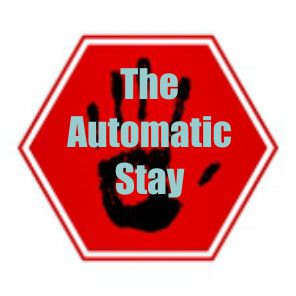Monthly Archives: April 2014
Quiznos Turns to Bankruptcy Amidst Increased Competition
 By: Stephen Krug, Law Clerk
By: Stephen Krug, Law Clerk
The various entities that comprise the Quiznos sandwich chain (“debtors”) filed for Chapter 11 bankruptcy protection in the United States Bankruptcy Court for the District of Delaware on March 14, 2014. A motion filed by debtors for joint administration of the cases was granted on March 17, and the case has been assigned to the Honorable Peter J. Walsh.
While debtors’ liabilities range from $500 million to $1 billion, the assets are only estimated to fall between $0 and $50,000. However, Debtors maintain that, although assets are low and 10,001 to 25,000 creditors exist, funds will be available for distribution to unsecured creditors. U.S. Bank National Association, as administrative agent and collateral agent under debtors’ second lien financing facility, is the largest unsecured claimant with a claim for approximately $174 million. Horizon Media Inc., MG-1005, LLC, and ESPN Inc. also hold substantial unsecured claims.
Debtors have proposed a pre-packaged reorganization plan that would slash debt by more than $400 million and would permit the handful of company-owned sandwich shops to remain operational. Sandwich stores operated by franchisees are not part of the bankruptcy proceedings and thus are not provided for in the pre-packaged plan.
Debtors hope to emerge from bankruptcy more viable than ever. Moving forward, debtors hope to reduce food costs and place more of an emphasis on advertising.
Debtors are represented by Mark D. Collins of Richards, Layton & Finger, P.A.
The University of Pittsburgh Institute for Entrepreneurial Excellence Celebrates 20 Years of Empowering Local Entrepreneurs!
By: Justin A. Saporito, MAZURKRAEMER Law Clerk
Founded in 1993 and run out of the University of Pittsburgh Joseph M. Katz Graduate School of Business, the University of Pittsburgh Institute for Entrepreneurial Excellence (IEE) began with a $300,000 grant and the mission of being the “innovative leader of economic renewal and growth serving enterprising people and businesses in the region.” In pursuit of this mission the IEE utilizes a dynamic approach of programs and services including monthly workshops, customized consulting, social initiatives, educational programs, professionally-led peer forums, and social events.
This dynamic program has led the IEE to grow to $3 million in annual revenue and the annual serving of hundreds of businesses through its seminars, customized consulting, and millions of dollars in raised capital and revenue. Last year alone the IEE served 824 businesses, helped create 39 startups, raised $10.7 million in capital, increased $14.4 million in revenue for clients, and educated more than 1,400 business leaders through 56 programs and seminars. (according to its 2012 Community Impact Report)
The IEE provides its services through its 8 institute centers and programs. These centers/programs consist of Agricultural Entrepreneurship, a 12-month Entrepreneurial Fellows Program, the Family Enterprise Center, the Information Technology Program, PantherlabWorks, the Small Business Development Center, Student Entrepreneurship program in conjunction with Katz School of Business, and the Urban Entrepreneurship Program. For more information about these programs please click here. To take advantage of one or more of these programs an individual or firm must become an IEE member. Membership includes benefits in addition to participation in IEE programs. For more information about membership please see the IEE’s membership brochure or contact the IEE’s membership director Shelley Taylor.
For more information about the IEE please visit their website at http://www.entrepreneur.pitt.edu.
The Company You Own Files Bankruptcy: Can Creditors Still Come After You?
 As is almost always the case, principals of a distressed business have personally guaranteed the debt on a credit line or property or equipment lease. When a business files bankruptcy, an automatic stay is imposed against any adverse actions taken against the business entity, the Debtor. But what about the owners of the business? Often, I find myself seeking to extend the automatic stay injunction to those principals. This issue came up in a recent case we had pending in the Fourth Circuit. We were compelled to find case law regarding the standard for relief.
As is almost always the case, principals of a distressed business have personally guaranteed the debt on a credit line or property or equipment lease. When a business files bankruptcy, an automatic stay is imposed against any adverse actions taken against the business entity, the Debtor. But what about the owners of the business? Often, I find myself seeking to extend the automatic stay injunction to those principals. This issue came up in a recent case we had pending in the Fourth Circuit. We were compelled to find case law regarding the standard for relief.
A factual example would be as follows: A distressed business ABC Recylcing owns a building, and the building has a mortgage on it in favor of Meanie Bank, N.A. The business falls behind on payments. Meanie Bank initiates a foreclosure action to set an auction to sell the building. Jake, the owner of the business had to sign a guaranty in order for ABC Recycling to get the loan with Meanie Bank. ABC Recycling still operates with the faint hopes of reorganizing through a Chapter 11 bankruptcy. Once the Chapter 11 is filed, the foreclosure action is stayed as to ABC Recycling, but now the Meanie Bank is going after Jake. Help, my clients say.
ISSUE: Pursuant 11 U.S.C. §105 and §362 of the Bankruptcy Code, is a court likely to grant an injunction to protect the principal of a bankrupt business?
CONCLUSION: Where the principal Jack is a primary guarantor of the mortgage and Meanie Bank now intends to secure a judgment against the principal, the principal will only be able to obtain an injunction by demonstrating a mutuality of identity with the Debtor such that allowing Meanie Bank to proceed against Jake will substantially deprive the Debtor of a primary asset (its owner’s time and attention). In Plain English, how important is the principal Jake to the Debtor’s operations? A four-part test is employed to make that determination.
While automatic stay proceedings are usually only available to the Debtor, under unusual circumstances, the Fourth Circuit has held that the Bankruptcy Court can enjoin proceedings against third parties. In re F.T.L. Inc., 152 B.R. 61 (Bankr. E.D. Va. 1993). However, where no compelling or unusual circumstances exist, then under §362 the Debtor’s guarantors must file their own bankruptcy petition in order to be protected by the Bankruptcy laws. Id. at 63. (this also happens often).
A court is only likely to grant an injunction to a third party non-debtor principal in the unusual circumstance that it is evident that the identity of the debtor and the non-debtor third party is so interconnected that it is clear that the creditor is proceeding against the debtor. Under such circumstances, the court may apply a four-part test and equitably grant an injunction where the court finds that:
- the plaintiff principal has a greater likelihood of succeeding on the merits;
- plaintiff principal has shown that lack of relief will result in irreparable injury;
- an injunction will not substantially harm other interested parties, and;
- preserving the status quo until the merits of the controversy is decided will serve public interests. Id.
In re F.T.L., the primary secured creditor to a car wash company debtor, secured a judgment lien against the debtor’s guarantors, the plaintiffs. Plaintiffs are the primary owners and guarantors of the car wash and the creditor perfected its lien against plaintiffs’ personal residence. Id. at 62. Noting that the collection activities against the owners arose from the car wash’s debt to the creditor, the court applied the four-part test and found that the debtor was likely to succeed on the merits by proposing a confirmable chapter 11 plan; the debtor’s chapter 11 plan would be impossible if the owners were forced to file their own chapter 11 petition; very little harm was likely to come to the creditor if it was enjoined from collection activities against the owner, and; lastly the creditors as a whole were best served if the debtor were allowed to propose a plan for reorganization. Id. The Court extended the injunction to the owners.
If you own a business and are wondering the same questions, you should review the facts and circumstances of your workout with your attorney. I think, by and large, the automatic stay is difficult to extend in Bankruptcy Court. You have to make a really compelling argument that the principal will be so consumed with his or her own bankruptcy that the Chapter 11 reorganization will suffer.
Billing Services Company Penn Data Services, Inc. Makes a 2nd Trip to Bankruptcy Court
By: Justin A. Saporito, MAZURKRAEMER Law Clerk and Salene Kraemer, Esquire
Penn Data Services, Inc. filed a voluntary petition for Chapter 11 bankruptcy protection on October 1st, 2013 in the Bankruptcy Court for the Western District of Pennsylvania (Pittsburgh). The case has been assigned to the Honorable Judge Carlota M. Bohm under case number 2:13-bk-24153. A summary of the docket can be found here.
This is the debtor’s 2nd consecutive voluntary filing for Chapter 11 bankruptcy protection, having previously filed over a year ago on August 21st, 2012 (that is referred to as a “Chapter 22” by those in the industry). That case was assigned case # 2:12-bk-24156 and was also overseen by Judge Bohm. The 2012 case was dismissed on August 30th, 2013 for failure to timely file a Chapter 11 Plan and Disclosure Statement. A docket summary of the initial filing for the 2012 case can be found here.
Penn Data Services, Inc. is a billing services company founded in 1996 and located in Natrona Heights, PA. The debtor claims assets of less than $50,000 with liabilities between $50,000 and $100,000. Christopher M. Frye of Steidl & Steinberg P.C. is again representing the debtor, having been debtor’s counsel for the 2012 case.
Affairs Afloat, Inc. Takes On Water With Chapter 11 Filing
By: Justin A. Saporito, MAZURKRAEMER Legal Clerk
Affairs Afloat, Inc. voluntarily filed for Chapter 11 bankruptcy relief on October 15th, 2013. The petition was filed in the Bankruptcy Court for the Southern District of New York. The case has been assigned to the Honorable Judge Burton R. Lifland, under case number 1:13-bk-13356. (Click case number for docket summary.)
The debtor is a river cruise operator that operates in New York City out of Pier 78 on West 38th Street. Affairs Afloat, Inc. was established in 1988 and provides services through its two river cruise ships, The Queen of Hearts (pictured right) and The Star of Palm Beach. The Queen of Hearts is a three level ship that is Coast Guard certified for 450 guests plus staff and crew. The Star of Palm Beach is a two level ship and is Coast Guard certified for 380 guests plus staff and crew.
Affairs Afloat hosts various cruises on specified dates in addition to its weekly cruises such as its Shadow Nightclub on Tuesday nights, Cruise Brasil on Wednesday nights, Candela Cruise on Thursday nights. Debtor also holds a Kiddie Cruise on Sunday afternoons. Debtor offers group packages for many of its events and its services are also available for private events. For more information about debtor’s programs and services please visit their website here.
Debtor claimed assets and liabilities of between $1 and $10 million with HSBC Bank, the Internal Revenue Service, the Security Exchange Commission. It appears that the Chapter 11 filing has not affected debtor’s operations as it is accepting reservations for cruises for Halloween and New Year’s Eve. Affairs Afloat, Inc. is represented by Jonathan S. Pasternak of DelBello Donnellan Weingarten Wise & Wiederkehr, LLP.



